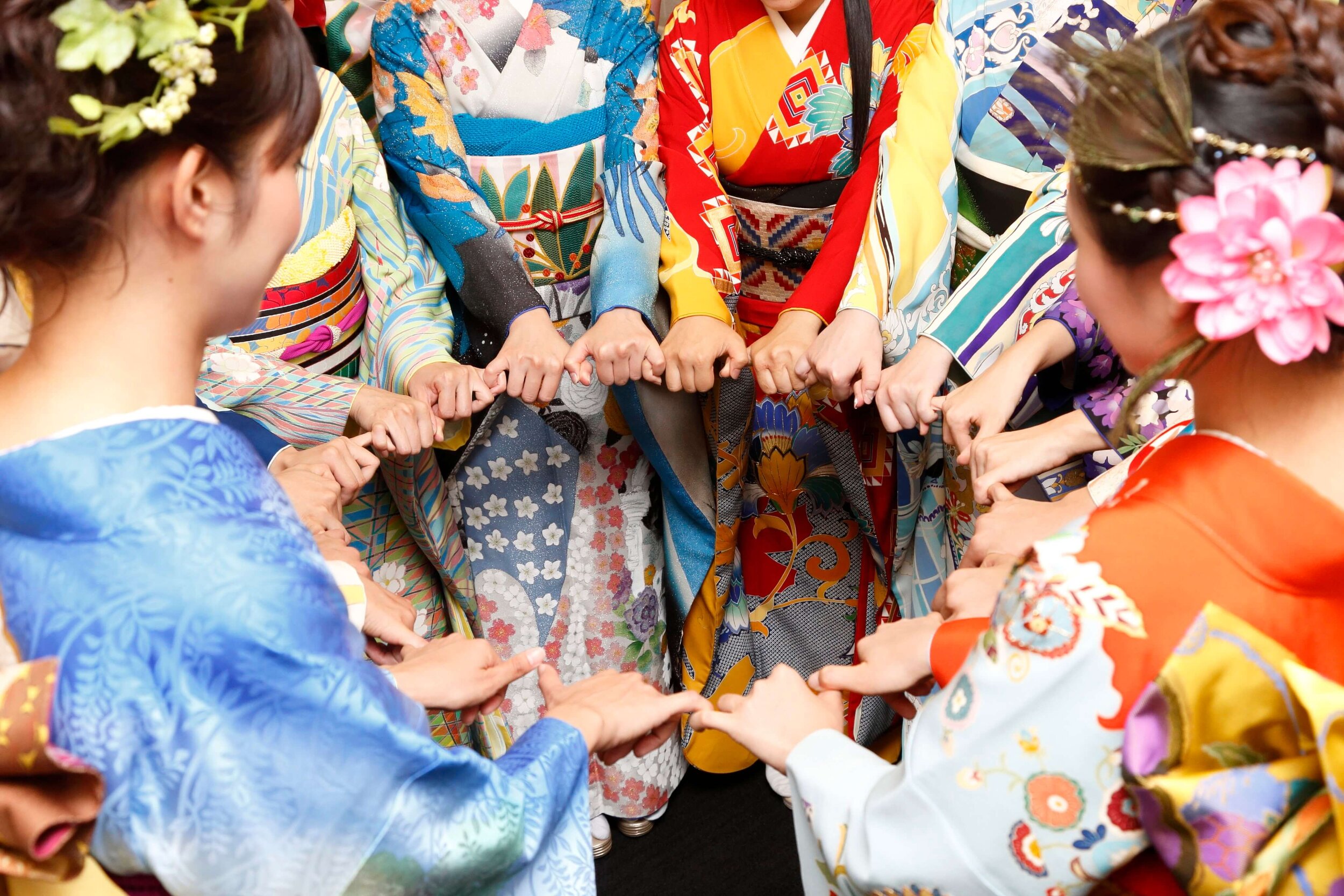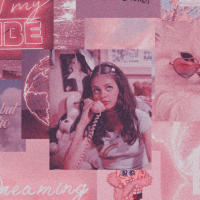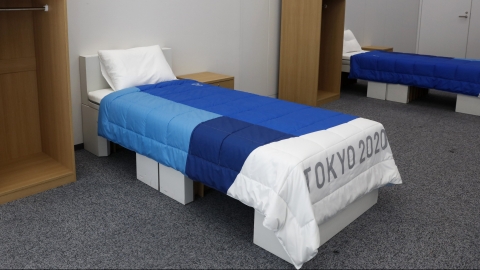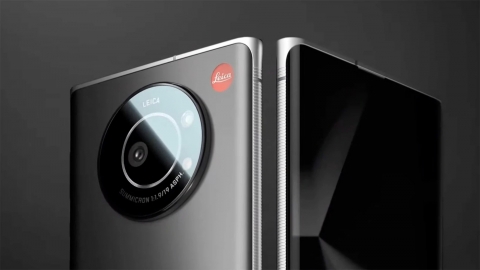Launched in 2014, the KIMONO PROJECT by the Japanese company Imagine Oneworld set a goal of completing 213 kimonos, each representing a country expected to participate in the Tokyo 2020 Olympics. This multi-year project sends a message of peace to the world while offering a unique opportunity to showcase the beauty and craftsmanship of Japanese artisans globally.
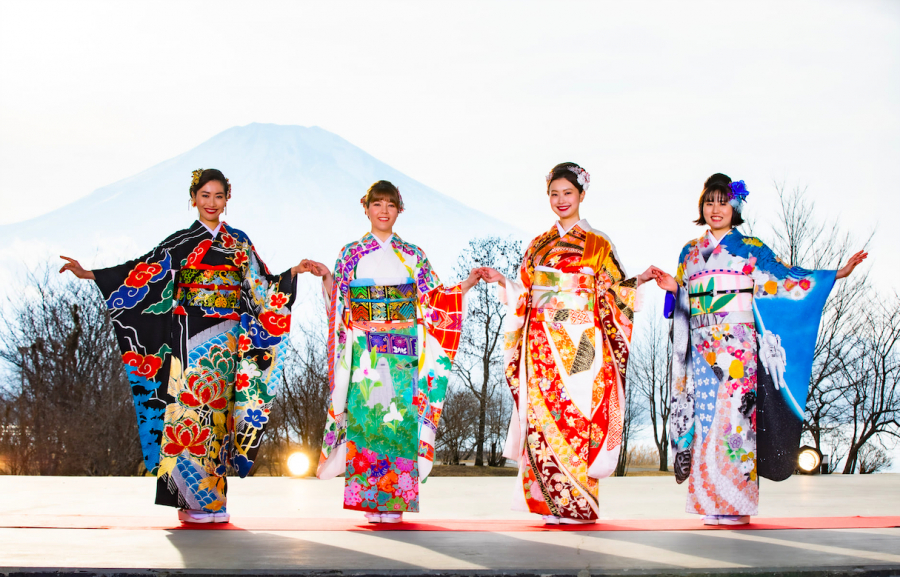
Yoshimasa Takakura, the Japanese designer and project leader, said, “I have always wanted to restore the pride and confidence of artisans, and my dream is to see the leaders of the sports delegation wearing kimonos at the opening ceremony of the Tokyo Olympics.”
Currently, the project has completed over 100 kimono designs and is still in the final stages of completion. Let's admire some of the outstanding designs from the project.
JAPAN
This Japanese kimono was designed by Chiso, a long-established brand that uses the Kyo-Yuzen dyeing technique. With the idea of connecting the world, the design features red floral patterns tied together on a white background, with prominent floral prints representing the 47 prefectures of Japan.
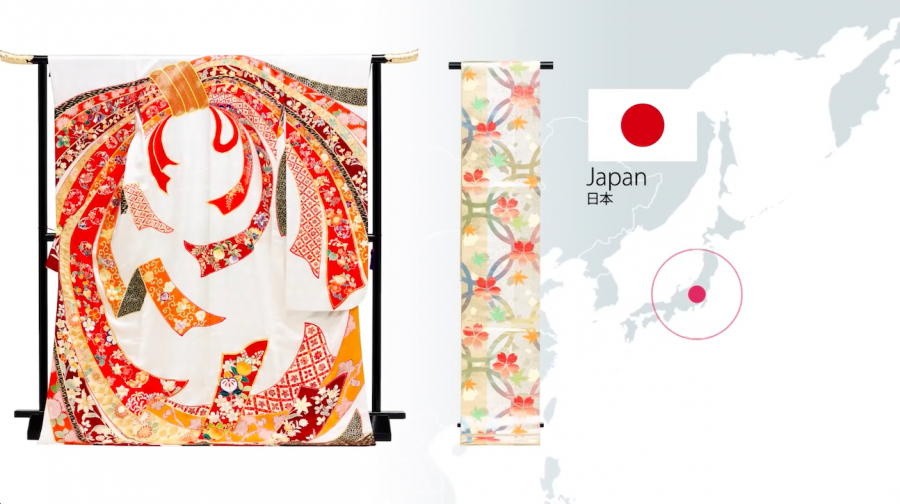
USA
The kimono representing the United States was crafted by designer Masaru Naruse. It incorporates numerous symbols, including state flowers, baseball and soccer symbols, Hollywood films, and the Statue of Liberty. Sculptures of Presidents Lincoln and Kennedy, the bald eagle, and the Apollo program are also featured on the garment. The red stripes on the white obi – allegorical for the stars and lines on the U.S. flag – are overlaid with olive branches. Each branch is based on the symbolism of the presidential seal and has 13 leaves, symbolizing the aspiration for peace.
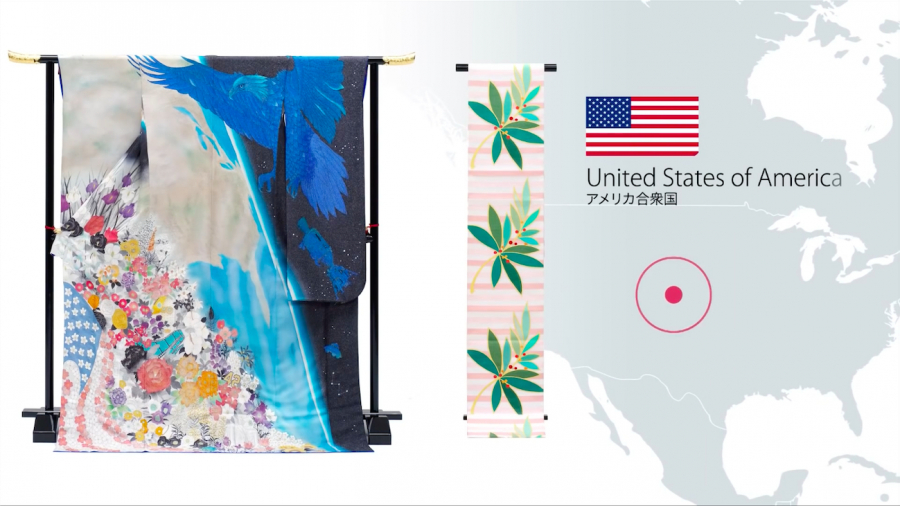
CHINA
This Chinese kimono features an embroidered dragon winding across a deep black background, symbolizing the Great Wall of China, surrounded by images of peonies, plum blossoms, bamboo, and clouds in various colors. A panda is added as a playful accent. The colors and patterns of the obi are inspired by the Tang Dynasty's Sancai pottery.
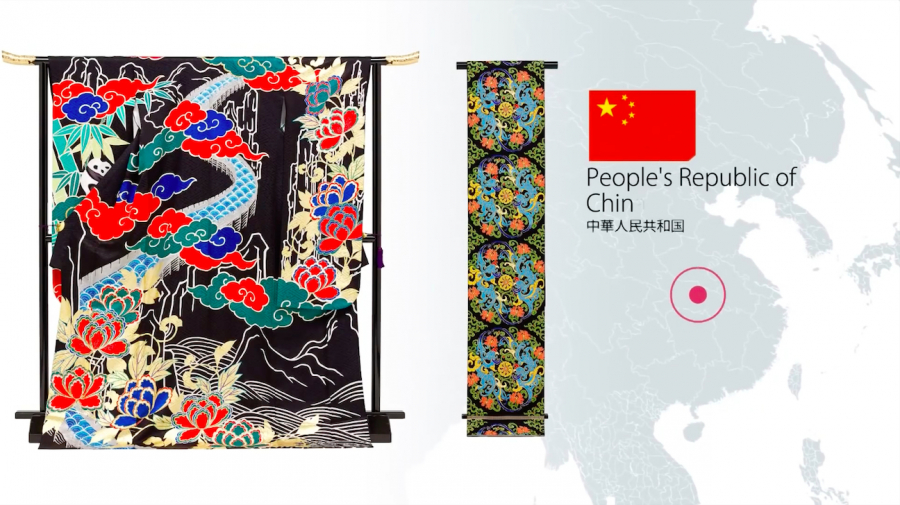
UNITED KINGDOM
The UK design is heavily influenced by British literature and cinema, incorporating iconic symbols ofHeart,A Midsummer Night's Dream,Alice in Wonderland,Sherlock HolmesandJames BondAlong with the River Thames, images of Big Ben and the London nightscape are also depicted on the kimono. The obi includes the national flower symbols of England, Wales, Scotland, and Northern Ireland.
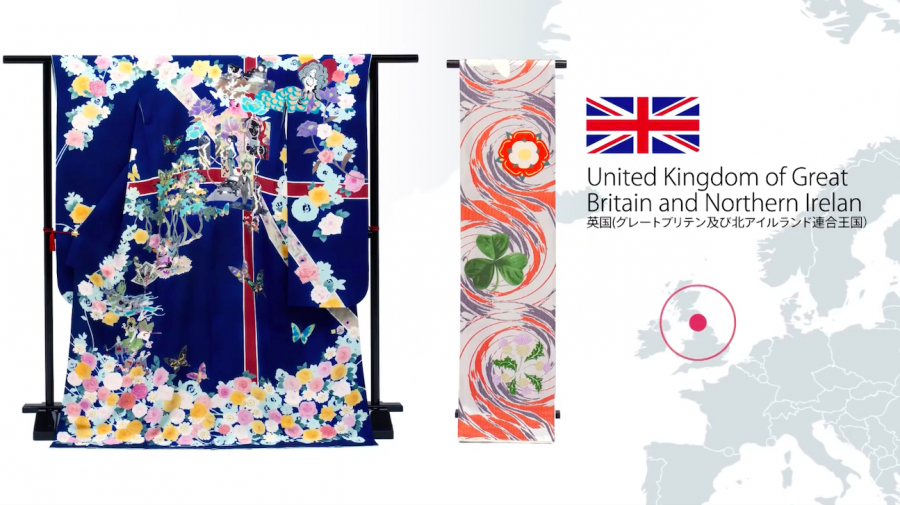
VIRTUE
The kimono features a stylized depiction of Germany's national flower, the Yagiku chrysanthemum, and a representation of a sonata.MoonlightBeethoven's work is presented in the form of electronic waves. The kimono aims to portray the image of a modern Germany, where heavy industrialization and classical culture coexist harmoniously.
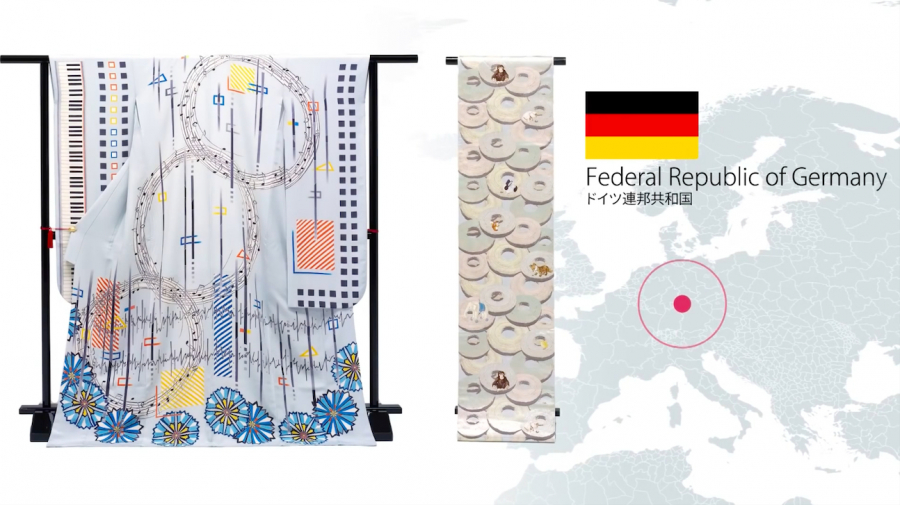
GREECE
Greece is the birthplace of the Olympic Games, and with its kimono, the civilizations of Athens are beautifully showcased. Against a turquoise background are the Parthenon, Greek letters, olive branches, and an owl – a symbol of wisdom. The obi features Greek architectural columns interspersed with primrose branches.
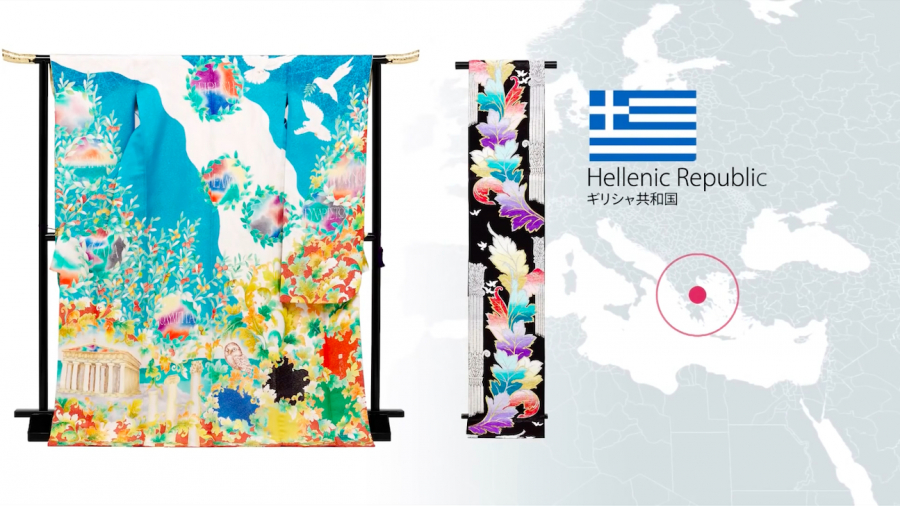
VIETNAM
The kimono is designed to celebrate the enthusiastic spirit of the Vietnamese people, along with the harmonious coexistence of the 54 ethnic groups. Children in traditional costumes woven into the fabric represent the future of Vietnam. Rice farmers, lion dancers, rickshaw drivers... all contribute to a vibrant and energetic spirit. The entire design is enveloped in a light green fabric inspired by rice-farming culture. The obi, in a deep crimson red, is hand-woven using traditional Vietnamese embroidery techniques.
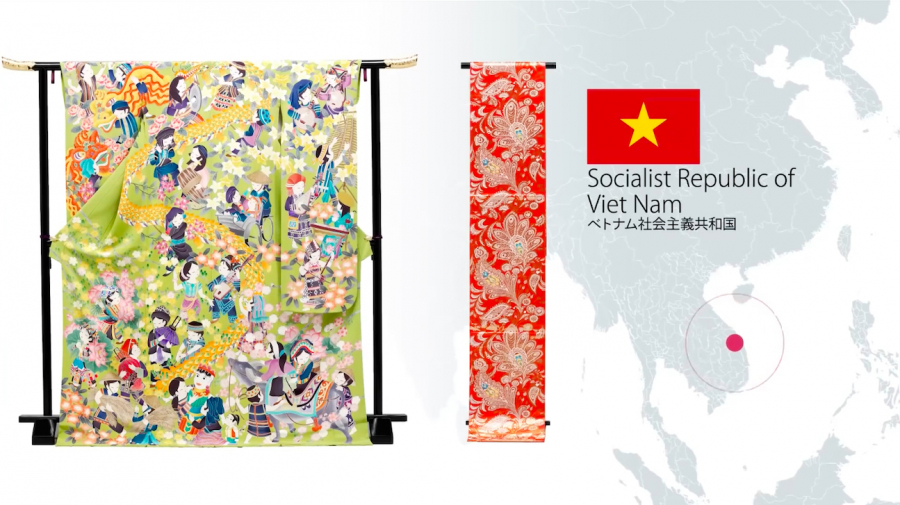
REPRESENTATIVES
What's most special about the KIMONO project is that even refugees have their own kimono. Imagine Oneworld shows that even those who cannot return to their homeland are welcome in a peaceful and better world. The kimono has a simple white outer layer with a few patterns, but the inner lining is incredibly vibrant and colorful. This is considered a symbol of the energy and constant transformation of the Tree of Life. On the obi, a stylized yin-yang symbol is woven on one side, while the other side features colorful striped patterns, signifying diversity.
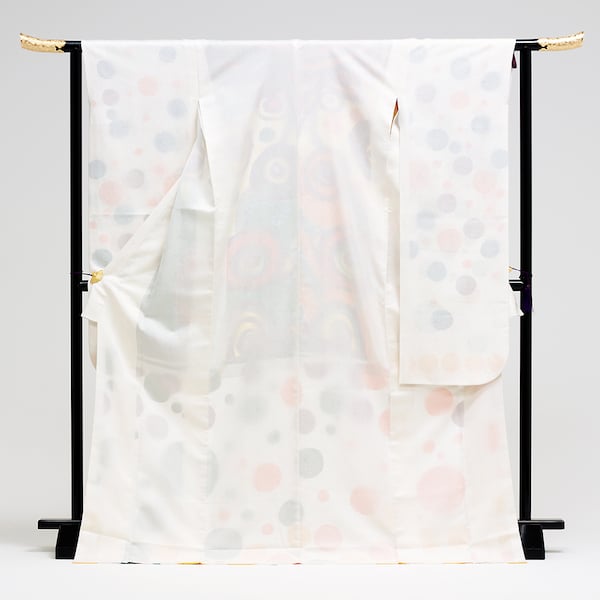
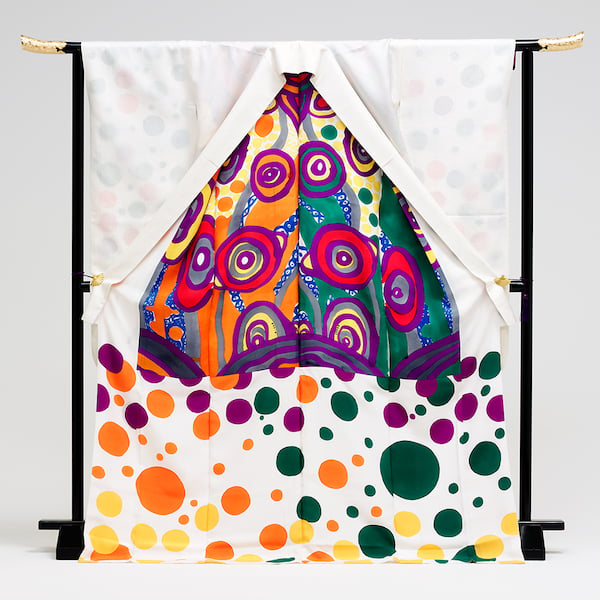
Most kimonos were designed and completed by Japanese designers; however, two kimonos were exceptional: the obi (sash) of the Palestinian kimono was created by refugees themselves, using Palestinian embroidery techniques; and the Indonesian kimono was made of wax, using the distinctive Indonesian batik dyeing art.
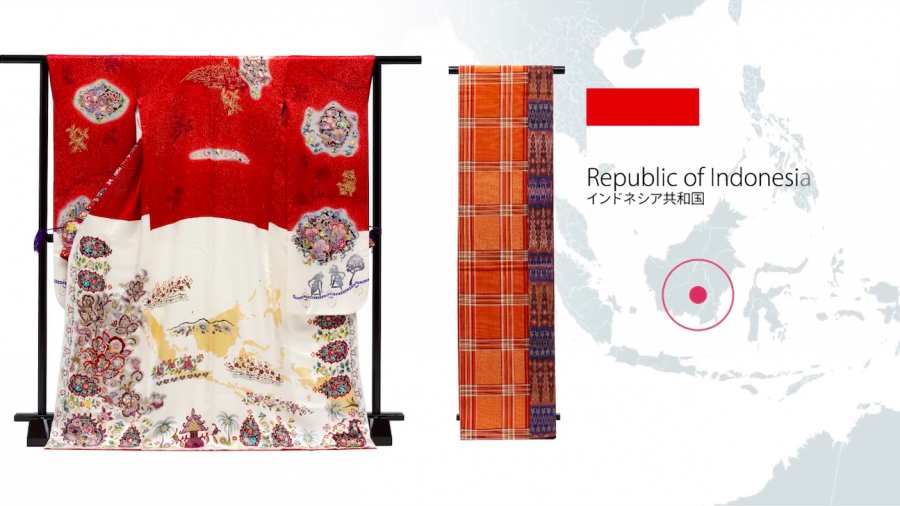
Kimono and obi designs represent the Republic of Indonesia.
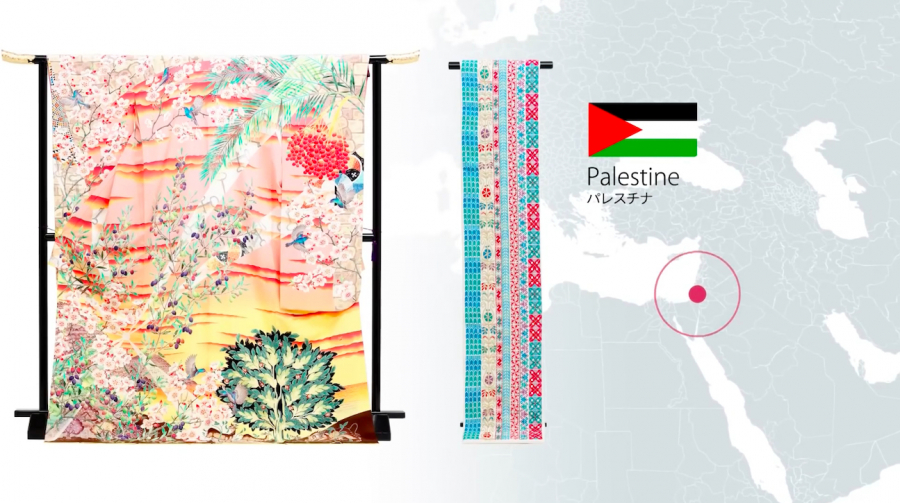
Kimono and obi designs represent Palestine.
AND SOME OTHER IMPRESSIVE KIMONO DESIGNS
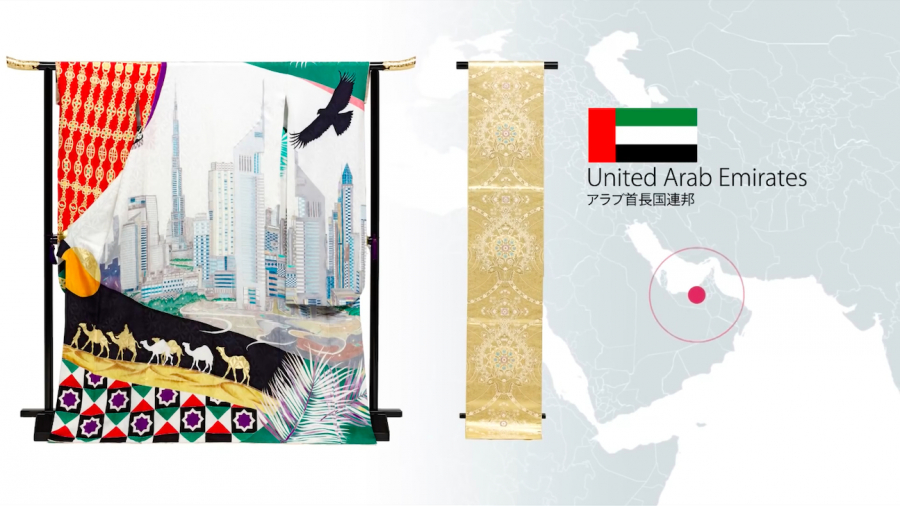
Kimono and obi designs represent the United Arab Emirates.
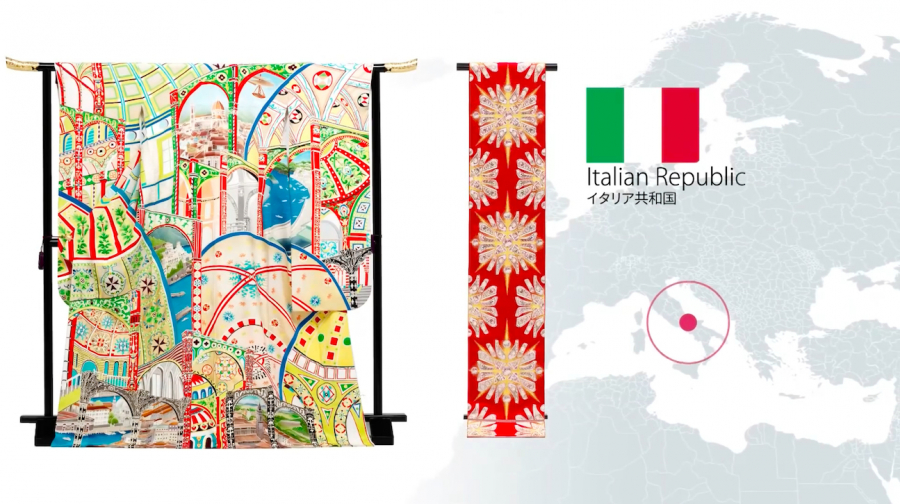
Kimono and obi designs represent the Republic of Italy.
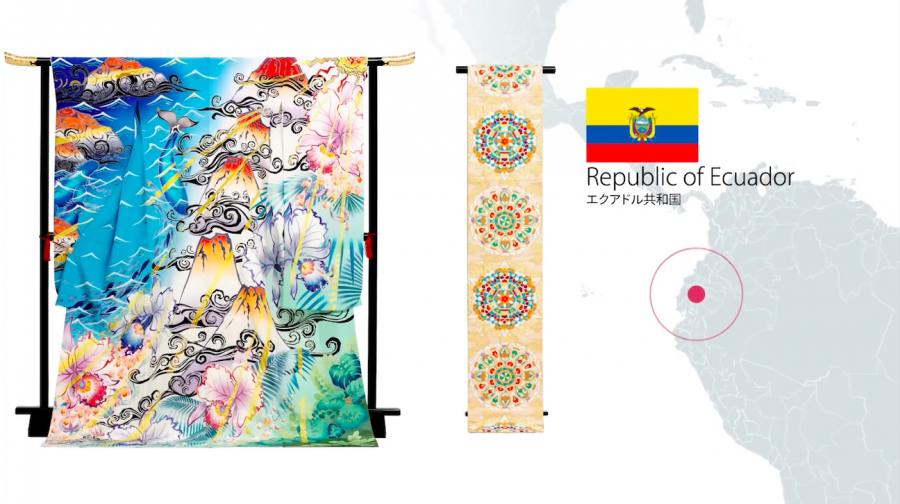
Kimono and obi designs represent the Republic of Ecuador.
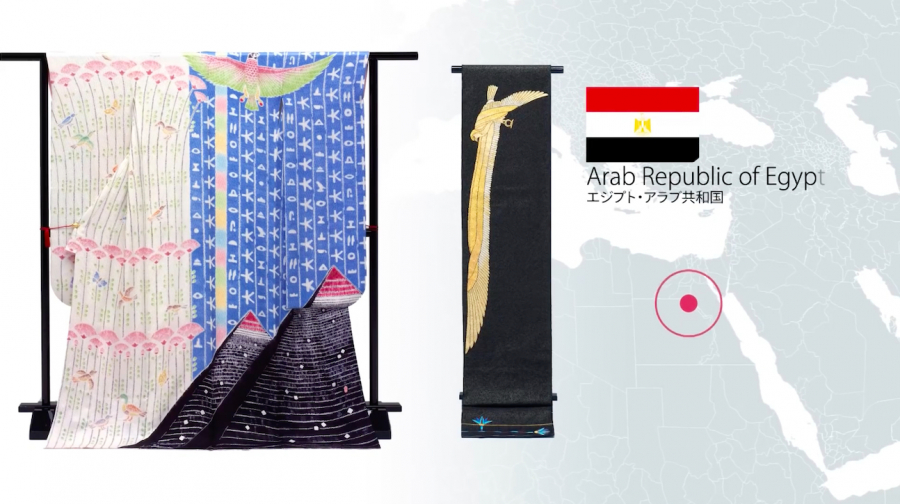
Kimono and obi designs represent the Arab Republic of Egypt.
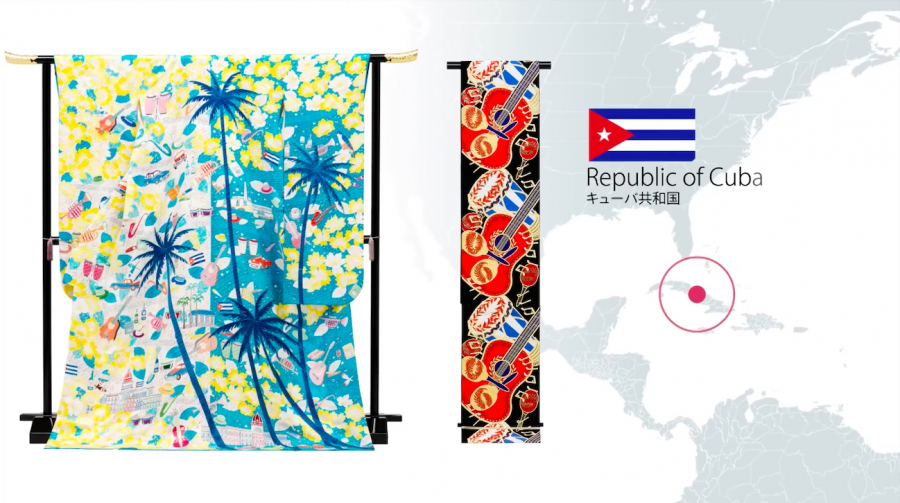
Kimono and obi designs represent the Republic of Cuba.
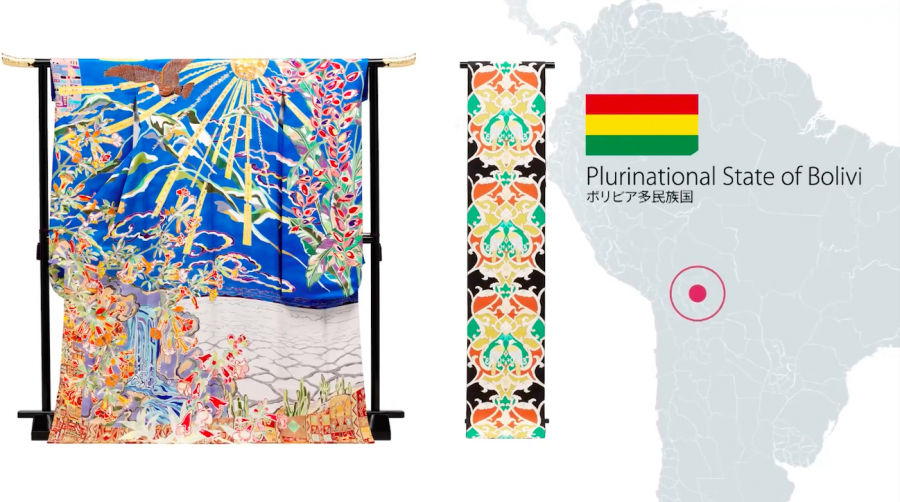
The kimono and obi designs represent the multi-ethnic state of Bolivia.
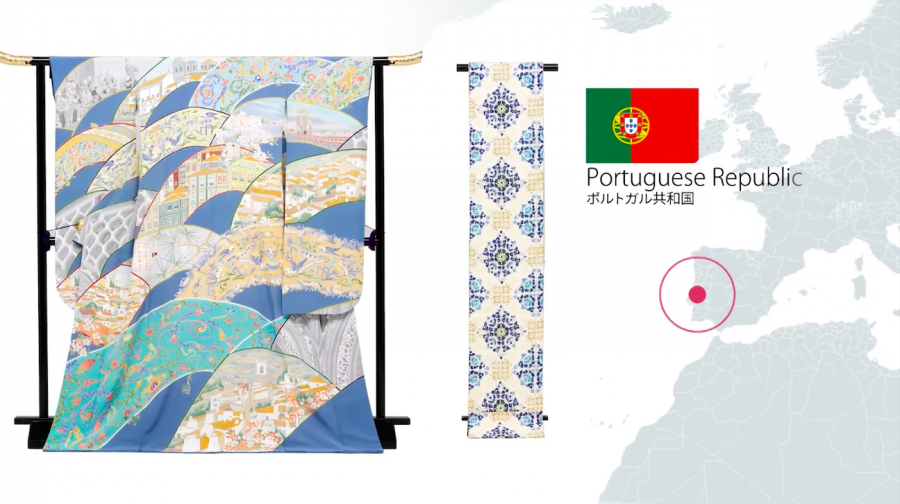
Kimono and obi designs represent the Republic of Portugal.
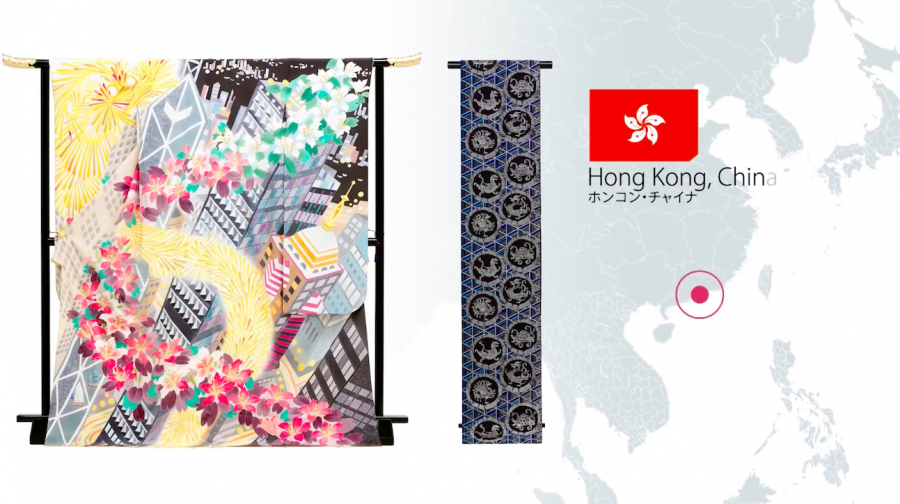
Kimono and obi designs represent Hong Kong.
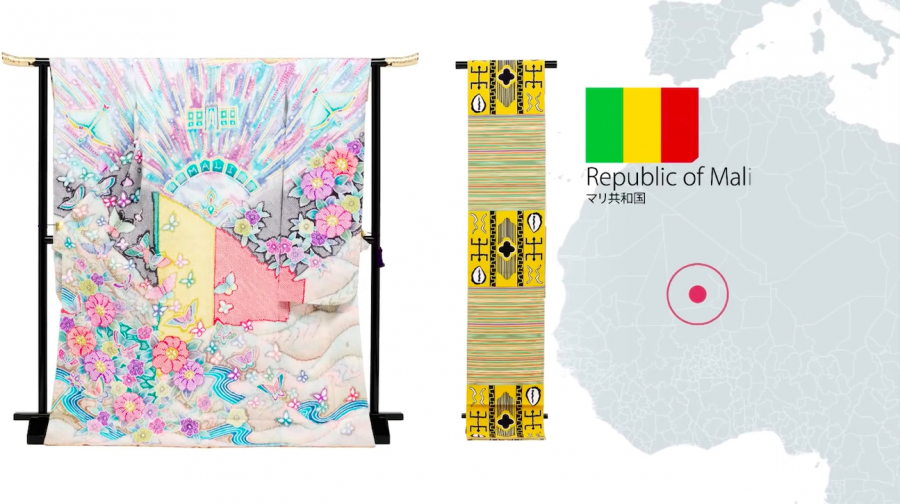
Kimono and obi designs represent the Republic of Mali.
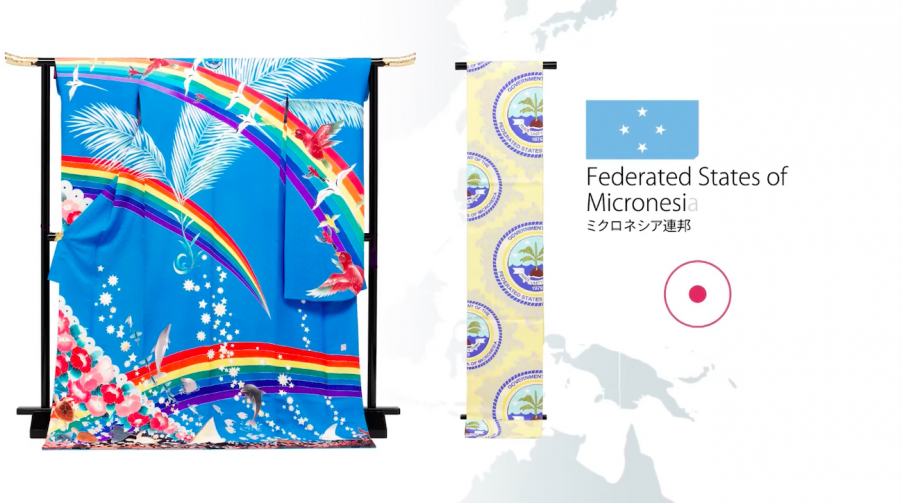
Kimono and obi designs represent the Federated States of Micronesia.
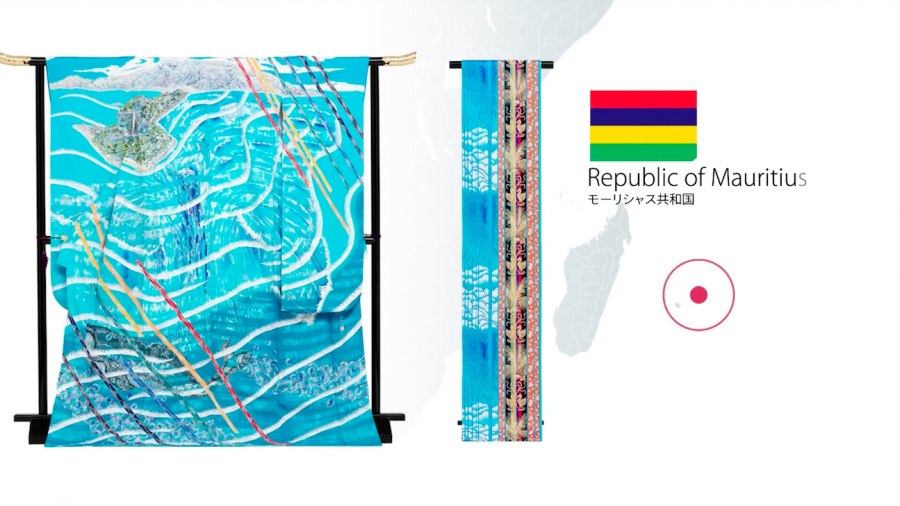
Kimono and obi designs represent the Republic of Mauritius.
Nobumichi Tejima, President of Imagine Oneworld, shared, “When the world comes together in Japan, we will send a message of peace – that ‘the world can be one’ – through Japanese kimono culture. Countries of all sizes, those who have created kimono masterpieces or emerging kimono artists, are all equal. The beauty of Japanese tradition will impress and inspire people around the world, igniting hope for a future where we live together in peace, regardless of differences in religion, politics, or skin color.”
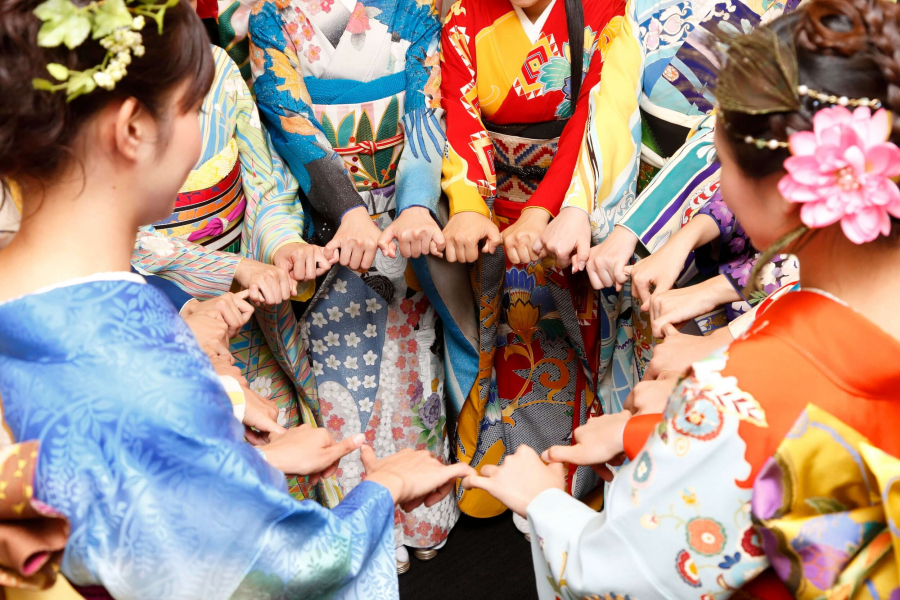
It is estimated that producing one kimono costs around 1 million yen, a sum funded through sourcing campaigns and the company itself. The kimonos will be displayed at the ongoing Tokyo 2020 Olympic Games in Japan and at the Osaka and Kansai Expo in 2025. These kimono masterpieces can also be admired.online.

 VI
VI EN
EN



